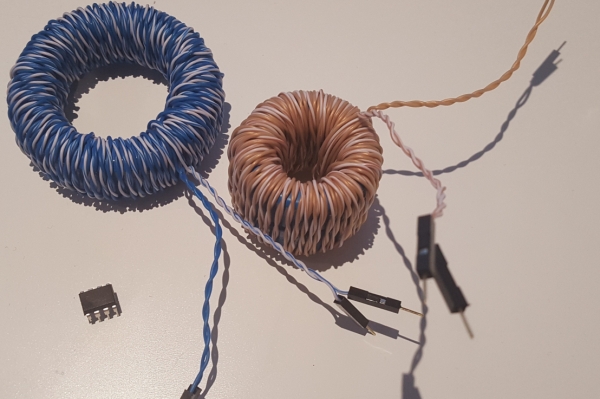Recently, I have been designing some SMPS and required some hardware to measure the actual loop response of the complete converters. People familiar with this area will probably know this can be done breaking the feedback loop of the converter and injecting a small AC signal and measuring the loop response at the output of the converter. However, such a measurement requires a mechanism to inject this signal differential across a small resistor inline with the normal feedback network. Unfortunately, as most signal generators are ground referenced we need special hardware to convert this output to a floating output.

Commercial PSU analysers come with expensive injection transformers that allow us to do that. These transformers are designed to have a very flat response in the region of conventional loop bandwidths of SMPS converters, these range from a few Hz to upto a few MHz.
For example this transformer for the Bode-100 costs $500!
The reason these transformers are so expensive is the use of exotic cores that result in high inductance with minimum turns. This way the low frequency behaviour of the transformer is improved without degrading the high frequency. Simply speaking, we need to add more turns to the transformer to improve low frequency behaviour, but the increased parasitic capacitance then degrades the high frequency behaviour.
I experimented with a few DIY transformers by purchasing some cheap £10 cores from RS. I wound around 5m of differential cabling scavenged from an old Ethernet cable.
Read more: HOMEMADE INJECTION TRANSFORMER FOR PSU LOOP ANALYSIS
